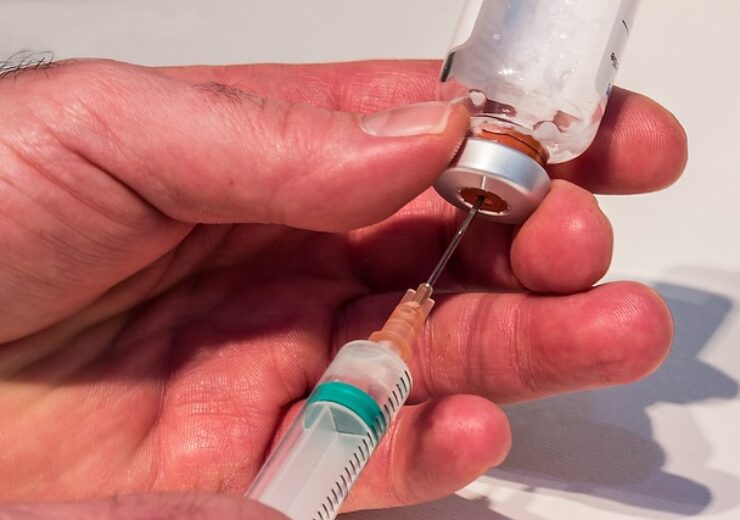HyQvia is a liquid medicine that contains Recombinant Human Hyaluronidase and immunoglobulins (Ig) from human plasma, infused under the skin into the fatty subcutaneous tissue up to once a month, for every three or four weeks

HyQvia is infused into the fatty subcutaneous tissue. (Credit: Myriams-Fotos from Pixabay)
Takeda has secured the US Food and Drug Administration (FDA) approval to expand the use of HyQvia to treat primary immunodeficiency (PI) in children aged two to 16 years.
HyQvia is a liquid medicine containing Recombinant Human Hyaluronidase and immunoglobulins (Ig), previously approved in the US, to treat PI in adults.
It is also approved in the European Union (EU) as a replacement therapy in adults, children and adolescents with PI and with secondary immunodeficiency (SID).
The drug contains immunoglobulins collected from human plasma and is infused under the skin into the fatty subcutaneous tissue, up to once a month, for every three or four weeks.
It is the only subcutaneous immune globulin (ScIG) infusion that can be administered once a month, every three or four weeks, said the Japanese pharmaceutical company.
Takeda US plasma-derived therapies business unit head Brandon Monk said: “This expanded HyQvia indication exemplifies our ongoing commitment to providing plasma-derived therapies with proven efficacy.
“HyQvia is now available to a broader community impacted by PI, including children and their families with distinct needs, who may prefer flexible treatment options in the management of these disorders.”
The expanded FDA approval of HyQvia in paediatric patients is supported by evidence from a Phase 3 prospective, open-label, non-controlled clinical trial in paediatric PI patients.
Data from the Phase 3 study showed that HyQvia is effective with respect to the occurrence of acute serious bacterial infections (aSBIs), which is a primary endpoint of the study.
In the study, the efficacy of HyQvia was further underlined by the overall rate of infections per subject, consistent with results obtained in the pivotal clinical study.
Results from the interim data analysis indicated similar safety profiles to adults, with no clinically meaningful differences in trough Immunoglobulin G (IgG) levels across age groups.
PI is an umbrella term, referring to a group of more than 400 disorders that affect the body’s immune system, increasing susceptibility to infection.
Last month, Takeda announced its plans to invest around JPY100bn ($767m) to build a new manufacturing facility for plasma-derived therapies (PDTs) in Osaka, Japan.
